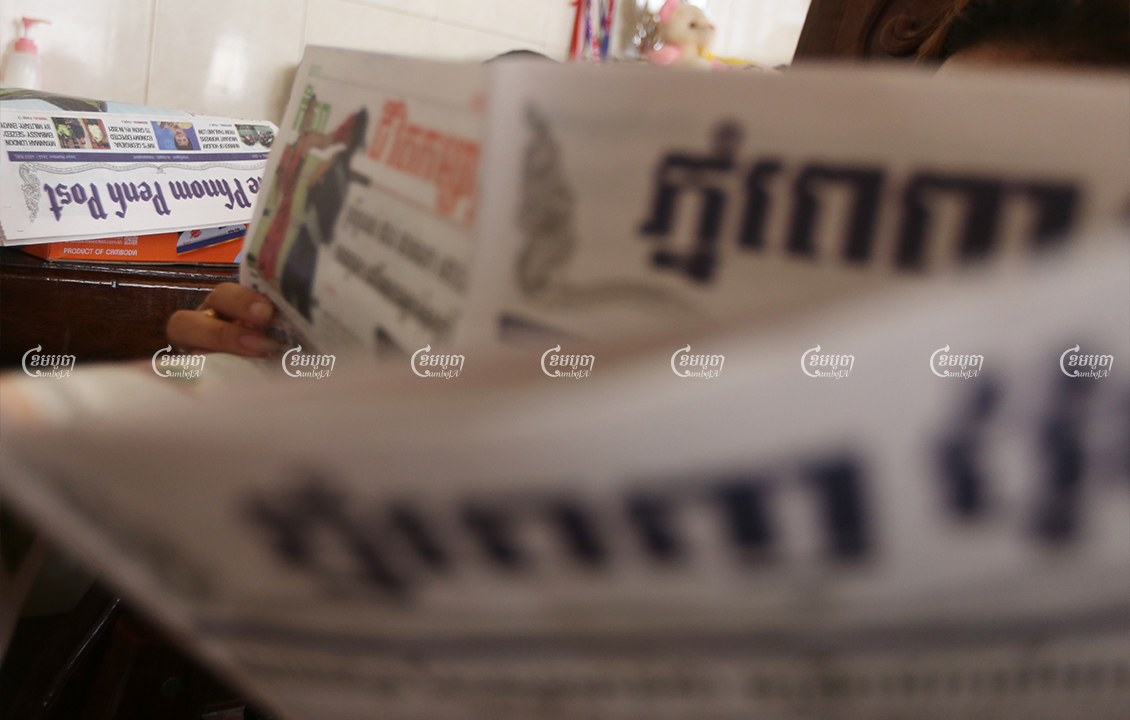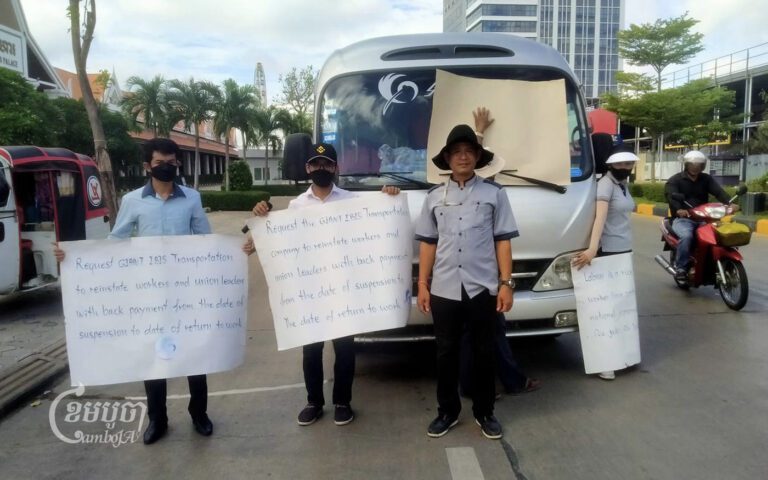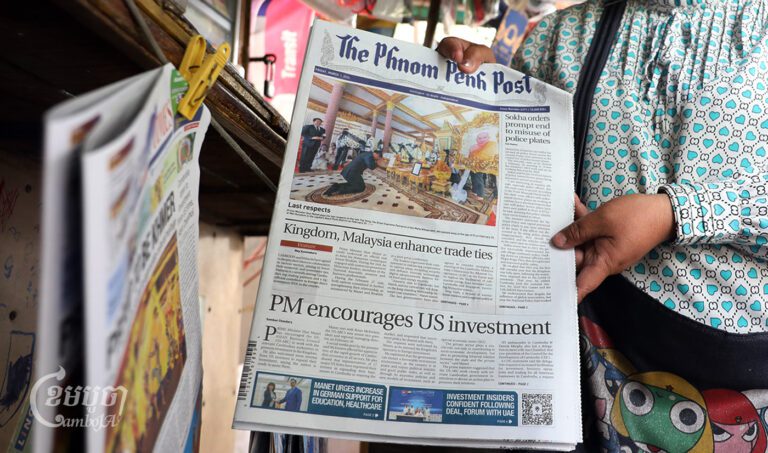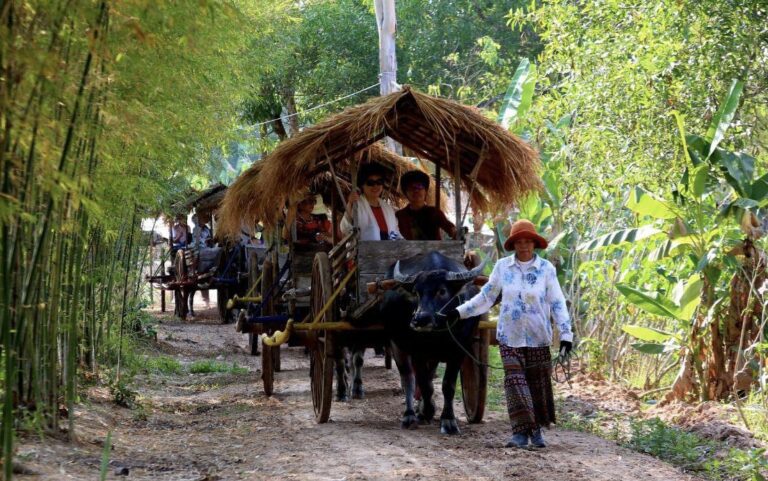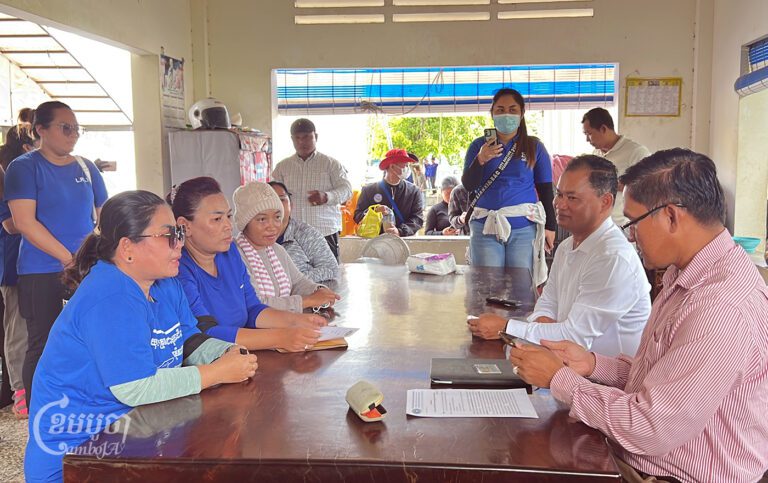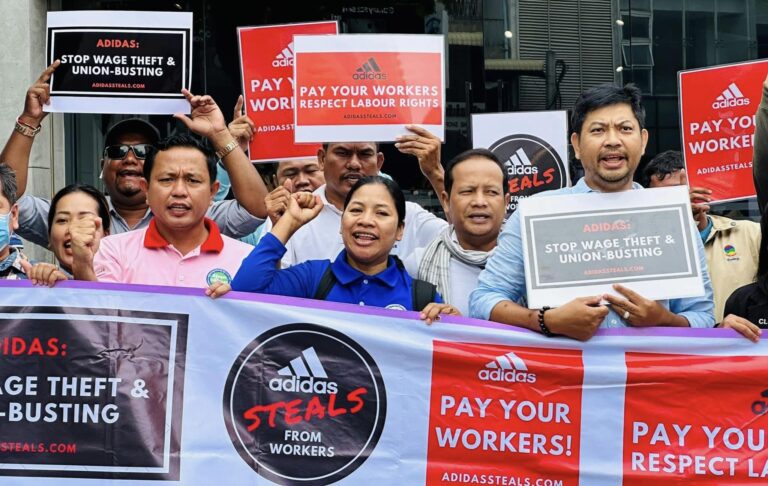As the sweeping COVID-19 lockdown in Phnom Penh restricts most work-related travel, Cambodia’s remaining traditional media outlets have suspended their print editions.
The formerly foreign-owned Phnom Penh Post, once the most prominent dual Khmer-English language newspapers in Cambodia, announced Tuesday it had temporarily stopped the presses due to the lockdown’s travel limitations within the city. However, the paper is still publishing as usual on its website and social media platform.
“We are having difficulty traveling because the Ministry [of Information] has limited the number of permissions,” said Ly Tayseng, publisher and CEO of the Post. “We do not have enough staff to work on printing and circulation.”
Tayseng said the suspension of printing will not harm the public’s ability to access information overall, given ready access to information on the internet. However, he added print media still serve an important role.
“Such a kind of traditional media has remained crucial because many people still need to read in-depth and analytical stories on paper,” he said.
However, Tayseng said while the government prioritizes COVID-19 containment, journalists should still be able to fulfill their jobs properly in any ways possible.
Another English-language edition newspaper, Khmer Times, has also announced on its website the suspension of its print edition until the relevant authorities grant permission to work in person.
“Due to the current lock down in Phnom Penh, we are unable to produce the printed edition of Khmer Times,” the announcement read. “We hope to resume printed editions as soon as the relevant authorities grant us permission to work in person and our printing plant (external printer) is able to commence printing. We apologise for the inconvenience caused and seek your kind understanding.
Khmer Times’ publisher, T. Mohan did not respond to a CamboJA request for comment.
As COVID-19 cases continue to rise sharply, the Cambodian government has introduced even stricter measures to its lockdown restrictions in Phnom Penh and neighboring Takhmao City, in Kandal province.
On Monday, the government listed several communes and villages in Phnom Penh as “red zones,” which face even stronger restrictions. Since the start of the pandemic in 2020, Cambodian health officials have recorded 7,444 cases and 49 deaths from COVID-19. Authorities logged 431 new infections on Tuesday alone.
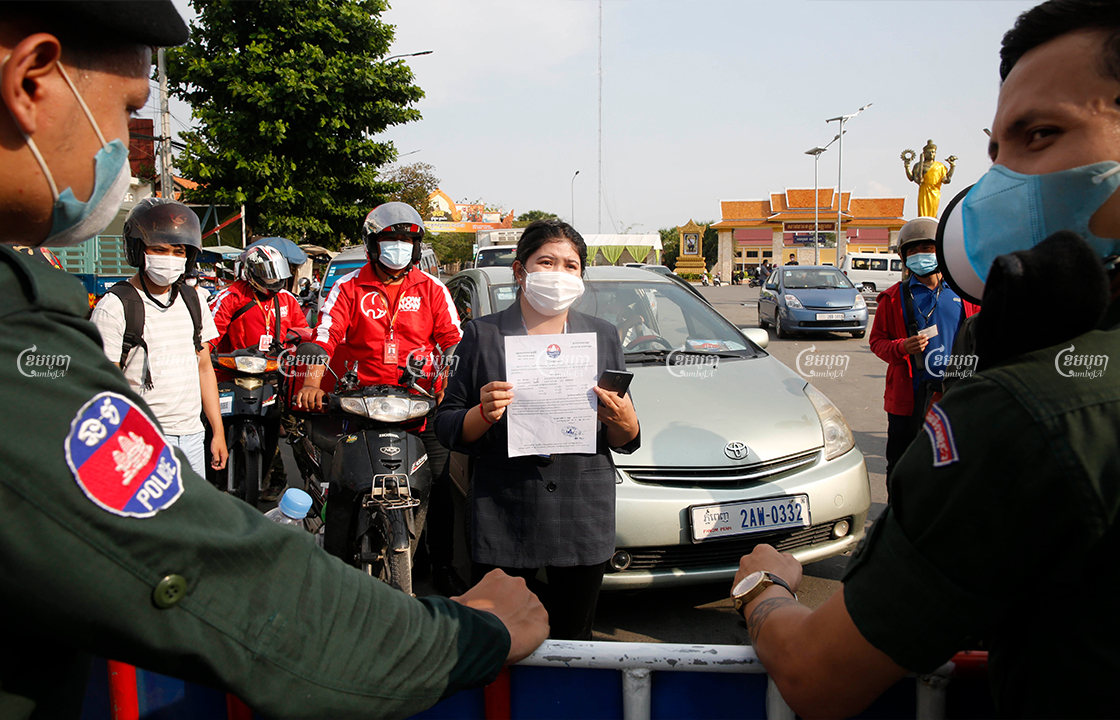
The press freedom group Reporters Without Borders (RSF) issued on Tuesday a 2021 Index on Censorship and Disinformation during the COVID-19 crisis in the Asia-Pacific. In that report, RSF wrote the region’s authoritarian regimes have used the COVID-19 pandemic to perfect their methods of totalitarian control of information, while so-called “dictatorial democracies” have used it as pretext for imposing especially repressive legislation with provisions combining propaganda and suppression of dissent.
Especially relevant to the COVID-19 ERA, the report noted “the behavior of the region’s few real democracies have meanwhile shown that journalistic freedom is the best antidote to disinformation.”
The report classified at least 10 countries in the region, including Cambodia, as either “bad or very bad” on its World Press Freedom map, stating these countries had used the pandemic to “reinforce obstacles to the free flow of information.”
According to RSF, Cambodia ranked 144 of 180 countries in the region as having “adopted extremely draconian laws or decrees in the spring of 2020 criminalizing any criticism of the government’s actions and, in some cases, making the publication or broadcasting of ‘false’ information punishable by several years in prison.”
Meas Sophorn, spokesman of Ministry of Information, dismissed the RSF report. Sophorn said the findings were a misrepresentation and just a one-sided assessment made by RSF or a handful of other groups.
“It does not reflect the realities of the journalism profession situation in Cambodia,” Sophorn said. “We see that freedom of the press in Cambodia is broader and more accessible to all media in both regional and global frameworks.”
According to the Ministry of Information, there are currently 1,365 media outlets and broadcasters across the country. Of those, there are 450 in printing, 669 digital publications, 220 radio stations and 26 television channels.
Sophorn said his office is working on issuing permission papers to media outlets to enable them to travel during the lockdown.
He said in this restrictive situation, all parties need to join with the government to cut the virus transmission in the community to protect both national and individual interests.
“This does not affect only the media sector, other private sectors and all state institutions are also required to reduce the number of staff at the workplace,” he said.
Sophorn said the ministry has not yet totaled the number of permission issuance.
Ith Sothoeuth, media director at Cambodian Center for Independent Media (CCIM), said he recognized the restriction has affected all sectors, not only media. However, he said the role of journalism should make space for some exceptions.
“More journalists should be allowed to access the areas under lockdown, making clear and comprehensive reports,” he said, adding that journalists are also monitoring irregular practices by authorities.
“Media plays an important role in delivering information to the public. When journalists are unable to fulfill the job, the true information will be missed,” he said. “We have seen in the past that some authorities go beyond the rules and [COVID-19 measures] may be an opportunity for them to abuse their roles as well.”


